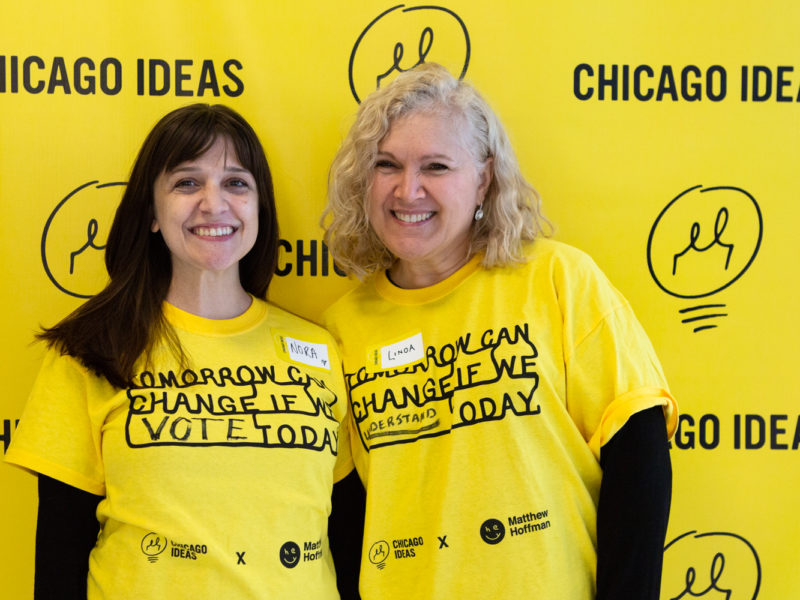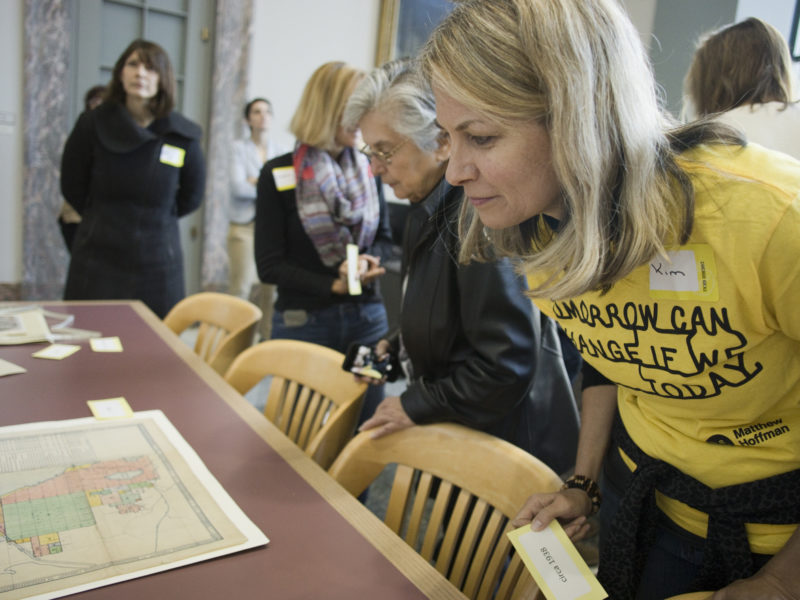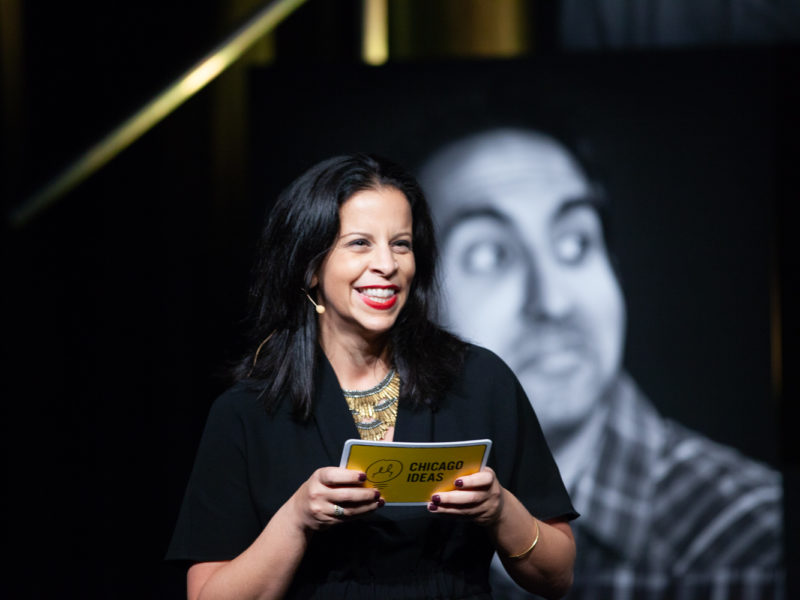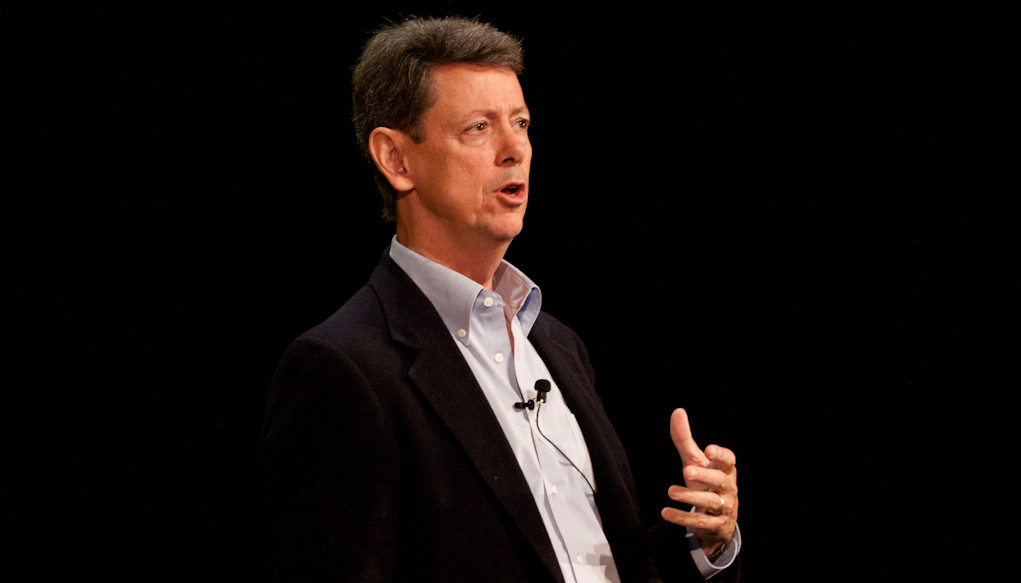
CIW Speaker Update: Rick Hanson
Dr. Rick Hanson, a Senior Fellow of the Greater Good Science Center at UC–Berkeley and founder of the Wellspring Institute for Neuroscience and Contemplative Wisdom, uses his neuropsychological research to teach others how to be happier.
The problem, as he explained on CIW 2011 stage, is our brain’s “negativity bias” which makes our brains “Velcro for the bad, but Teflon for the good.” The solution? Stay with good experiences for 10 to 20 seconds, allowing them to stick to your brain.
We caught up with Hanson in between teaching workshops on his HEAL method across the globe—from California to Germany—and got some insights ourselves into how to use neuropsychology to maintain a happier, more fulfilling lifestyle.
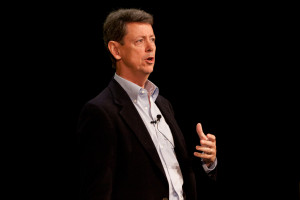
Hanson describes how to “take in the good” at CIW 2011.
Let’s take a step back first. How did you get into this line of neuropsychological research in the first place?I started from the inside out. In my own 20s, I started to realize that if I looked for the good facts around me—the legitimately existing good facts. I don’t believe in positive thinking; I believe in realistic thinking. In other words, seeing the whole mosaic of reality. In my own case, I noticed in my 20s…I felt inadequate. I started looking for good facts around me—people smiling, including me, what have you. Second, I tried to help myself have a good experience based on the good facts. Third, most important, I stayed with the experience and tried to help it sink in. I found in my 20s that when I did that, I started changing, really growing and it felt very legitimate. It felt authentic. Years later, I got interested in what was going on neuropsychologically: Why was this method so effective for me?
Your latest book is Hardwiring Happiness, which takes the concept you explained in your Chicago Ideas Talk—that individuals should sit and reflect on positive life experiences, “hardwiring” those experiences into their brains—and provides the steps to making that an everyday practice. Tell us a little about what you hope people learn from the book. What this book is about is a very amazing and simple idea: that ordinary experiences in daily life are the fuel for growing various kinds of inner strength, including happiness. What my latest book is about is the how of self-help based on the neuropsychology of learning. In other words, it’s not enough to count your blessings at a meal. You’ve got to actually help your brain take the extra 10, 20 seconds to register that useful mental state for it to become any kind of a neural trait. But without installing this experience into your brain, it’s wasted on your brain. You’re leaving all this money on the table.
Do you use the HEAL method you teach in the book yourself?I use it myself in my own personal life, and I teach it to other people. We ran a study on it through the University of California at Berkeley. What we found is that by doing this course and practicing taking in the good, people became actually happier…. Even two months later, people were less anxious and less depressed, and also they were more contented, they felt more confident, they also felt more loving to other people and they were more resilient. They bounced back further from difficulties.
You mentioned that in addition to and as a part of your research, you teach workshops on the HEAL and other methods. What do those workshops—which you call Positive Neuroplasticity Training (PNT)—look like? The course is fundamentally about how to change your brain for the better, applied to…key themes: themes of safety, satisfaction and connection. We apply the general methods in the course to issues people have.Anyone can take the course—it’s for the general public. Interestingly, a lot of people who do take the course are in management positions or in helping or educational professions, broadly defined. They’re interested in using these methods with other people to turbo-charge the learning process. What my course is about the neuropsychology of emotional learning. In effect, the course is about how to get better at getting better.
Beyond your busy teaching and research schedule, what is up for you next?
I am going to create an online program called the Foundations of Well being that anyone can do worldwide and that goes through 12 fundamental factors of well being grounded in hard-core research. What I’m going to do is teach people the general methods of changing their brain for the better, applied to the 12 fundamental keys to well being, like befriending yourself or developing more motivation or being of service to others. That will launch in September…and we’ll have a very broad scholarship policy.
Q&As are edited for clarity and length.


